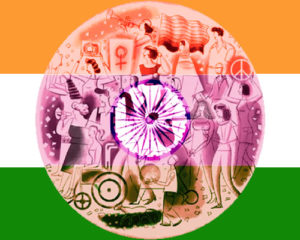
By Amanda Astorga Pinto 06/21/2017.
My research proposal is based on the theory that the perceptions and definitions of gender in society have repercussions in health care policy and development. That is why, I want to comprehend how different groups of people understand gender in New Delhi, India, with the help of students and activists of organizations that work with gender equality related issues. Through field studies I will collect women’s experiences, journeys, and stories around this topic.
Using qualitative research I will be able to collect this information in a flexible and empathetic way. To strengthen my knowledge and practice in data collection I took a Participatory Research course this spring semester. In this class, we are learning different research methods, how to analyse outcomes and handle ethical issues such as informed consent and confidentiality.
One of the objectives of the course is to design and conduct a pilot research project. I am taking advantage of the classes’ space to test out some methods and approaches that I want to apply in my research in New Delhi. During the project’s initial design phase these tools have proven to be very helpful to understand how to start tackling an issue as sensitive as gender inequality and its impact in women’s health care.
I have realized that how you conduct the specific methods as well as how you interact and engage with participants is just as important as choosing the right research methods to conduct a study. It’s about knowing where to define boundaries, but as a researcher, being flexible enough to embrace the unexpected.
The topic I chose is filled with strong and conflicting emotions; nevertheless courageous and optimistic organizations all around the world are trying to bring down the walls of gender inequality. Every day women’s rights and gender issues get more attention; my wish is to expose them as a problem that is imperative to address not only because of the social discrimination, but for the sake of women’s health care. Gender discrimination should be visible to everyone and the information to stop it available to all.
I am confident that conducting my research in New Delhi will bring a new, fresh and hands on perspective to gender studies and its relation to health care.
